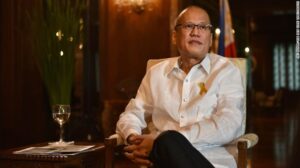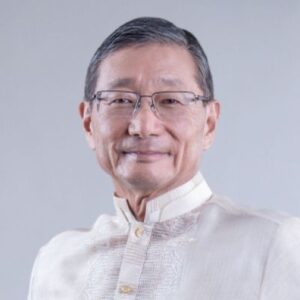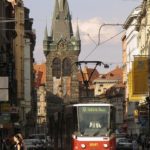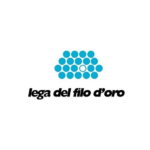Si è spento giorni fa l’ex presidente delle Filippine, Benigno Aquino III. Era malato da tempo.Tutti sanno che suo nonno era stato firmatario della Costituzione, suo padre era stato ucciso da Marcos e la madre era stata la prima donna ad essere eletta con voto democratico alla guida del mio Paese. Lui era l’ultimo di una grande dinastia politica. Il popolo lo ricorda con commozione. Si è scritto tanto su Aquino III, per il suo impegno per lo sviluppo delle Filippine e per la sua difesa della democrazia. Ecco una breve riflessione.

FILE — President Benigno Aquino III of the Philippines during an interview in Manila, May 19, 2016. The official in charge of prosecuting government misdeeds in the Philippines on July 14, 2017, ordered that criminal charges be filed against former President Aquino for a botched assault in 2015 on a Muslim rebel camp that left 44 police commandos dead. (Jes Aznar/The New York Times)
The former President of the Philippines Benigno Aquino III died last Thursday, June 24 2021 at the age of 61 after being hospitalized in Quezon City, state media reported.
Popularly known as “Noynoy,” Aquino was the country’s 15th president, serving from 2010 to 2016 following the death of his mother, former President and democracy icon Corazon Aquino.
An economist by training, Aquino worked in the family sugar business before launching his political career in 1998. He served three terms as congressman in the House of Representatives before becoming a senator in 2007.
He was the only son of popular democracy icons Senator Benigno “Ninoy” Aquino and former President Corazon. His father, a senator who opposed the rule of dictator Ferdinand Marcos, was assassinated in 1983 on returning home from exile in the United States. The killing shocked the nation and helped propel Marcos out of office in the 1986 “People Power” revolution, according to Reuters.
His mother, who died in August 2009, ruled as President from 1986 until 1992. A month after her death, Aquino announced his run for presidency, saying his mother’s supporters had urged him to make a bid and continue the fight started by his parents to promote democracy in the Philippines.
He won his election in 2010 by a landslide, persuading voters he was morally fit for the job and would represent ordinary Filipinos. His six years term was marred with crises and was tainted by scandals over the lawmakers’ misuse of public funds, according to Reuters.
As we read and hear the outpouring of gratitude for President Benigno S. Aquino III, highlighting his accomplishments and his virtues. Mr. Motoo Konishi who was World Bank country director for the Philippines from 2012 to 2016, write a bit about how much the World Bank has learned from President Aquino.
World Bank’s institutional goal is to eliminate extreme poverty and promote shared prosperity. On this, President Aquino will tell you three things. First, unless you improve governance and reduce corruption, you can never eliminate extreme poverty. Second, unless you can tackle climate change and natural disasters, you can never eliminate extreme poverty. And lastly, unless you can grow the economy that lifts the entire country from bottom up and create meaningful jobs you can never eliminate extreme poverty. Those three conditions for eliminating poverty was really taken to heart by the World Bank.
The Aquino administration walked the talk. Here are some examples of things which the World Bank learned as part of advising the administration.
On governance and corruption: The Philippines was one of the eight founding members of the Open Government Partnership—a global partnership between government and civil society to promote transparent, inclusive and participatory governance; anti-corruption effort at the Department of Public Works and Highways (DPWH) brought down the cost of large national contracts by 25-30% (much of it due to elimination of corruption payments); tax revenues improved from less than 12% of GDP (one of the lowest in the region) to over 15%, including the passage of sin tax, and using the multilateral banks to create the huge fiscal space which the current administration is using to borrow to finance the heavy cost of COVID-19 expenses. The improvement was so impressive that the World Bank held conferences of heads of tax authorities in the region on how it was accomplished. Support to the Department of Budget and Management (DBM) on bottom-up budgeting to direct more resources towards rural and poverty reduction programs and budget reform and transparency. Breakthrough work on the Bangsamoro Peace Process and the Organic Law. And of course most importantly, the drive for good governance led to one of the fastest economic growth rates globally, rivaling that of China.
On climate change and natural disasters: The bank, Asian Development Bank (ADB) and Japan International Cooperation Agency (JICA) were able to help the National Economic and Development Authority (NEDA) to put together the Typhoon Haiyan Reconstruction Plan in less than six months after the typhoon and delivered several billion dollars of assistance packages in matter of few months (again a new record at the World Bank). A complete game changer in the world of post disaster reconstruction planning and it has now set a new global standard on disaster response. In addition, to reduce and mitigate the financial burden caused by natural disasters, the Department of Finance (DOF) instructed the World Bank to create a wholly new Disaster Risk Financing and Insurance Program (now a new product line offered globally by the World Bank).
On improving the quality of growth and lifting the whole country from the bottom up, the Aquino administration expanded the program to provide universal coverage of health insurance; doubled the families covered under the Conditional Cash Transfer Program that pulled 7.7 million Filipinos out of poverty (largest and one of the best managed program of this type in the world). And nearly tripling the budget for social services (education, health and DSWD – unheard of increase in social services globally).
The Aquino administration was committed to delivering on its promises to the Filipino people and knew how to maximize the resources available to them to ensure that these objectives were met. We worked hand-in-hand with them in ensuring that only the cutting edge policy solutions were proposed and implemented. My senior staff were practically embedded in many of the departments. We would scramble and work with our Washington teams to put together global best practice notes in 24 to 48 hours. Many of the reports were produced in-house in Manila. The Philippines Jobs Report and Mindanao Jobs Report both were monumental work produced by teams led by our brilliant senior economist Karl Chua who is now the secretary of NEDA.
Over the 35 years that I served at the World Bank, I have worked with presidents and ministers in over 30 countries. But the four years as the country director for the Philippines has been the most challenging, most impressive and most rewarding because of the Aquino leadership and administration.
We witnessed and appreciated the difficulty and effort that was required to stabilize and turn a country around that was in a downward spiral. We also saw first-hand the togetherness and shared vision that is necessary to put a country on a true growth path. We were inspired to work for a President and a Cabinet truly pushing to eliminate poverty and bring a brighter future for its citizens. And we all know that this is because of the [resident’s unwavering devotion to the Filipino people, to improving their lives, and to retake the position of Philippines as a nation to be proud of and a nation that will succeed and excel in Asia.
Dear President Aquino, on behalf of all the World Bank staff who worked on the Philippines during your administration, it’s been a true honor and privilege to serve you. Bravo for the pride that you have brought back to the Filipino people.





